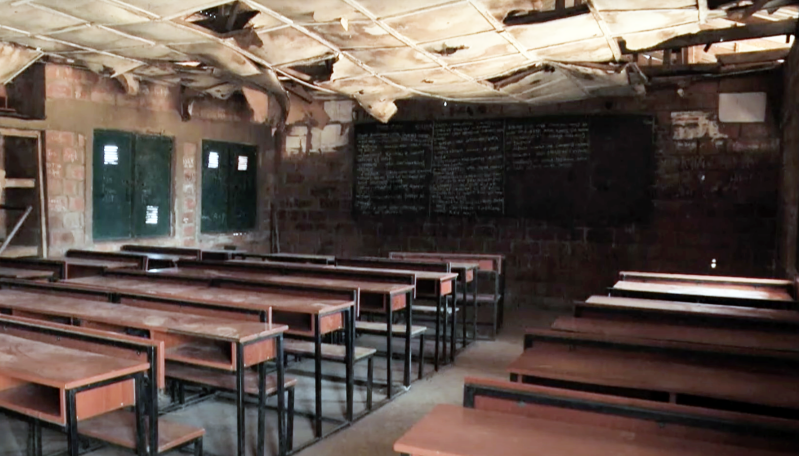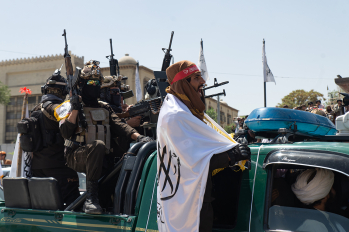
Nigeria’s government at federal and state levels continues to tolerate attacks by non-state assailants who justify violence on religious grounds, according to a report by the U.S. Commission on International Religious Freedom (USCIRF).
“Islamist and some Fulani militant groups have expressed a goal of overthrowing secular governance with the intention of enforcing a singular interpretation of Islam,” states the report, released on Friday (Aug. 9).
About 30,000 “Fulani bandits” operate in several groups in northwest Nigeria in groups of 10 to 1,000 members, engaging in “violence and banditry targeting predominantly Christian communities in Nigeria and generally pose the greatest security threat in northwest Nigeria,” the report states.
Their crimes include kidnapping, rape, property and cattle theft, illegal possession of weapons and murder.
“The specific perpetrators of and motivation behind individual attacks can be difficult to verify,” USCIRF states. “Regardless of motivation, however, attacks in the northwest, northeast and central regions of Nigeria significantly restrict freedom of religion or belief, particularly for the predominantly Christian communities that live there.”
Fulani-associated criminality has been occurring for years but has evolved into a transnational security dilemma, the report notes, adding that crimes are magnified by competition for natural resources between predominantly Christian farmers and predominantly Muslim Fulani herders. The conflict this year has drastically affected food production and regional trade and fomented illegal taxation of primarily Christian farmers, the report states.
“Violence between herders (mostly Muslims) and farmers (predominantly Christian) sometimes results in the destruction of religious sites, even when nonreligious factors like resource competition and ethnic animosity are the drivers of conflict,” the report states. “This competition often manifests along religious divides between Christians and Muslims, particularly in areas like Plateau state, where both communities reside.”
In January, skirmishes between Fulanis and ethnic Mwagaful farmers killed at least 30 people in Plateau state, and assailants also burned churches and mosques.
“Fulani bandits also carry out kidnappings to extort ransom money from middle- or working-class families,” USCIRF states. “In several cases, they have kidnapped students from Christian schools or from buses taking children to these schools.”
Gangs generally release hostages unharmed if families meet ransom demands, but victims’ families have criticized the government for being slow in responding to and rescuing those abducted; the report also notes that they criticize the government for failing to prevent kidnappings.
Nigerian President Bola Ahmed Tinubu has requested victims’ families refrain from paying ransom demands to discourage abductions. Tinubu has also promised the government will utilize more “detailed strategies” to curtail kidnappings, though he has not elaborated on them, according to the report.
USCIRF states that government policies are discriminatory, infringe on religious liberty, lead to abuse of human rights and subtly aid terrorist activities in the country. The government has not undertaken spirited efforts to check escalating terrorist attacks, it notes.
The government uses blasphemy laws to prosecute and imprison individuals perceived to have insulted religion, including Christians, Muslims and humanists, USCIRF states.
“It also continues to tolerate egregious violence by nonstate actors, including JAS/Boko Haram, the Islamic State West Africa Province (ISWAP), and other extremist groups,” the report states. “This violence affects large numbers of Christians and Muslims in several states across Nigeria and targets both religious sites and individuals from religious minority communities.”
Nigeria’s constitution declares the country as secular and democratic, but blasphemy laws and sharia (Islamic law) codes lead to subjugation of non-Muslims who are forced to abide by tenets of Islam, the report states. The 1999 constitution states that the federal and state governments cannot adopt an official religion, but it permits the use of sharia and traditional law courts for noncriminal proceedings at the state level, though it does not compel all citizens to abide by them.
At present 12 states in northern Nigeria, as well as the Federal Capital Territory (FCT), have implemented sharia legal frameworks, and some are applying it in criminal cases, the report states.
“The Nigerian government continues to imprison individuals accused of blasphemy and often fails to pursue perpetrators of violence related to blasphemy allegations,” the report states.
Several people remain incarcerated with long prison sentences due to blasphemy convictions, it states.
“On the other hand, there appears to be a willingness on the part of the Nigerian government, including state governors, to discuss the country’s security situation more openly,” the report states. “Nigeria’s government is becoming more active in pursuing violent non-state actors who continue to attack or threaten religious communities.”
Over the spring, the government resolved two major kidnapping events: criminals in March released more than 130 school students in Kaduna state unharmed, and in May, army troops and police units rescued hundreds of JAS (Jama’at Ahl al-Sunna lid-Dawah wa’al-Jihad)/ Boko Haram-held women and children in the Sambisa forest in northeastern Nigeria. Most of the hostages had been held there for months or even years, the report states.
In its 2024 Annual Report, USCIRF recommended the U.S. Department of State designate Nigeria as a Country of Particular Concern (CPC) due to the government’s engagement in and toleration of particularly severe violations of religious freedom.
“The report also outlines several steps the U.S. government can take to address religious freedom issues in Nigeria, including emphasizing the importance of religious freedom considerations in the provision of U.S. foreign assistance funds,” the report states. “This would not only advance FoRB in Nigeria by helping to create a more sustainable security situation but would also position Nigeria as a stronger bulwark against broader regional conflict affecting religious communities across the Lake Chad basin.”
In Open Doors' 2024 World Watch List (WWL) of the countries where it is most difficult to be a Christian, Nigeria was ranked No. 6, as it was in the previous year. Nigeria remained the deadliest place in the world to follow Christ, with 4,118 people killed for their faith from Oct. 1, 2022 to Sept. 30, 2023, according to the WWL report. More kidnappings of Christians than in any other country also took place in Nigeria, with 3,300.
Nigeria was also the third highest country in number of attacks on churches and other Christian buildings such as hospitals, schools, and cemeteries, with 750, according to the report.





